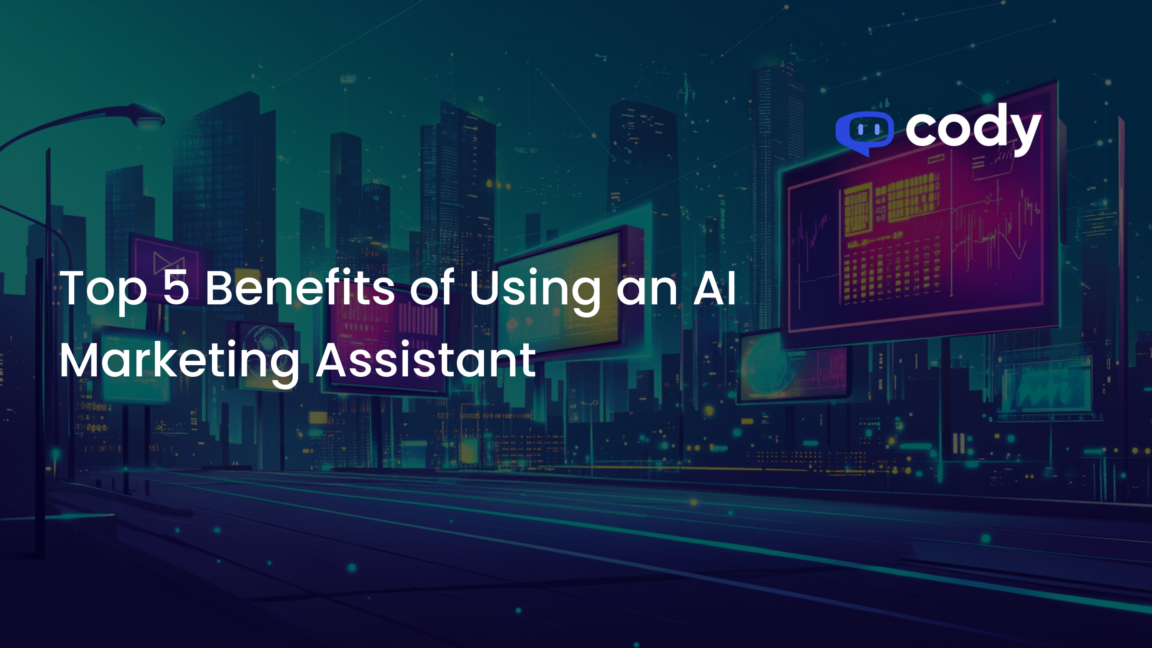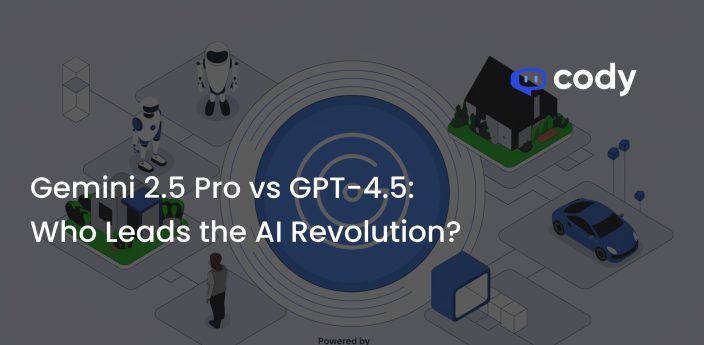
Top 5 Benefits of Using an AI Marketing Assistant
The influence of Artificial Intelligence (AI) in the marketing industry has been growing exponentially. AI is revolutionizing how businesses approach marketing by transforming key functions such as advertising, analytics, and communications. This innovative technology offers numerous benefits, including cost reduction, increased revenue, and enhanced customer engagement. Leading companies are already leveraging AI to automate content creation, personalize customer experiences, and optimize ad targeting, all of which contribute to more effective marketing strategies and significant business results. The ongoing evolution of AI ensures its pivotal role in shaping the future of marketing.
Personalized Content Creation with AI Marketing

AI revolutionizes content creation by analyzing user data to craft highly personalized content that resonates with target audiences. Through natural language generation (NLG) technologies like Narrative Science’s Quill, AI can produce engaging content at scale. For example, MasterCard utilizes such technologies to automate the creation of insightful articles from structured data, significantly enhancing their content output while maintaining quality.
Additionally, tools like Automated Insights’ Wordsmith are employed by organizations such as The Associated Press to generate automated reports, allowing human reporters to focus on more nuanced tasks. Companies like the Orlando Magic use similar technologies to produce personalized emails, social media posts, and web content, leading to higher fan engagement and satisfaction. This tailored content not only boosts user interaction but also drives higher conversion rates by delivering exactly what the audience wants.
AI-Powered Targeted Advertising
AI algorithms have revolutionized targeted advertising by identifying and targeting the right audience with unparalleled precision. These algorithms analyze vast amounts of data, including user behavior, demographics, and other relevant factors, to create highly specific audience segments. This allows marketers to deliver personalized ads that resonate more effectively with their target audiences.
One notable example of successful AI-driven ad campaigns is Spotify’s personalized music recommendations. By leveraging AI, Spotify analyzes user listening data to deliver tailored ads that align with individual tastes, significantly enhancing user engagement. Another example is the AI-powered ads by ecommerce companies that target users based on their browsing and purchasing history, resulting in higher conversion rates.
The benefits of AI-powered targeted advertising are extensive, including improved reach and higher impact. By optimizing ad delivery to the most relevant audiences, businesses experience better ROI. With AI’s ability to continuously learn and adapt, the effectiveness of targeted advertising campaigns only improves over time, ensuring that marketing efforts remain efficient and impactful.
Chatbots: The AI Marketing Assistant Revolution
AI-powered chatbots have fundamentally transformed customer service by providing instant responses and round-the-clock support. These chatbots can handle a wide array of queries, from simple information requests to more complex troubleshooting issues, significantly enhancing customer satisfaction. As they manage routine tasks efficiently, human agents are freed up to focus on more complex and high-value interactions, thereby improving productivity and service quality.
The impact of AI chatbots can be seen across various industries. For instance, in retail, brands like H&M use chatbots to assist customers with product recommendations and order tracking. In finance, banks employ AI chatbots to guide users through financial transactions and answer questions about services. These applications not only improve customer experiences but also gather valuable data to further refine marketing strategies.
Predictive Analytics for Smarter Marketing Strategies

AI-driven predictive analytics is revolutionizing marketing by providing valuable forecasts and insights. By analyzing vast amounts of data, AI can identify trends and predict future customer behavior, enabling marketers to craft more effective strategies. Tools such as IBM Watson and Google Analytics leverage machine learning algorithms to interpret data patterns, helping businesses anticipate customer needs and respond proactively.
The benefits of incorporating predictive analytics in marketing are substantial. It enables better decision-making by providing actionable insights, leading to optimized marketing strategies. Additionally, it allows for personalized customer experiences by predicting which products or content a user will be most interested in, thereby enhancing customer engagement and satisfaction .
Ultimately, the use of predictive analytics transforms the approach businesses take toward marketing, making it more data-driven and customer-centric. This not only improves the efficiency of marketing campaigns but also boosts overall business performance.
Future Potential of AI in Marketing
While AI offers transformative potential in marketing, its implementation is not without challenges. One significant hurdle is the high initial cost of AI technology. Small and medium-sized businesses often face financial constraints that make it difficult to invest in advanced AI solutions.
However, the potential return on investment (ROI) is substantial. AI can significantly improve marketing efficiency, reduce costs, and enhance customer engagement, leading to higher revenue in the long term. We, at Cody AI, are trying to reduce the gap in AI accessibility for SMEs by providing the latest generative AI technologies at a fraction of the cost.
Looking ahead, AI in marketing is poised to evolve further. Future trends include more sophisticated predictive analytics, advanced natural language processing for better customer interactions, and enhanced AI-generated content. As AI technology becomes more accessible, its adoption in marketing is expected to rise, making it an indispensable tool for businesses aiming to stay competitive.
Conclusion: Embracing AI for Marketing Success
AI in marketing undeniably offers numerous benefits, from personalized content creation to predictive analytics and targeted advertising. By leveraging AI, companies can achieve exceptional speed, cost-effectiveness, and quality in their marketing efforts. These advancements not only streamline operations but also enhance customer engagement and satisfaction.
Businesses are encouraged to adopt AI to stay ahead in the competitive market landscape. With AI’s capabilities, marketers can automate mundane tasks, gain insights from vast data sets, and focus more on strategic and creative endeavors. As AI technology continues to evolve and become more accessible, its integration in marketing strategies is poised to become indispensable.
Overall, the future of AI in marketing is promising. Companies that embrace AI today will not only gain a competitive advantage but will also be well-prepared for the innovations of tomorrow. Embracing AI is not just a trend but a strategic necessity for sustainable growth and success.
Unlock the full potential of your marketing efforts with Cody AI, your personalized AI Marketing Assistant for your organization with just one click. With Cody AI, you no longer have to stress about the hurdles of integrating AI in your organization thanks to its simple and intuitive interface. Discover how an AI Marketing Assistant can revolutionize your strategies and boost productivity. Ready to take your marketing to the next level? Get started with Cody AI today!



